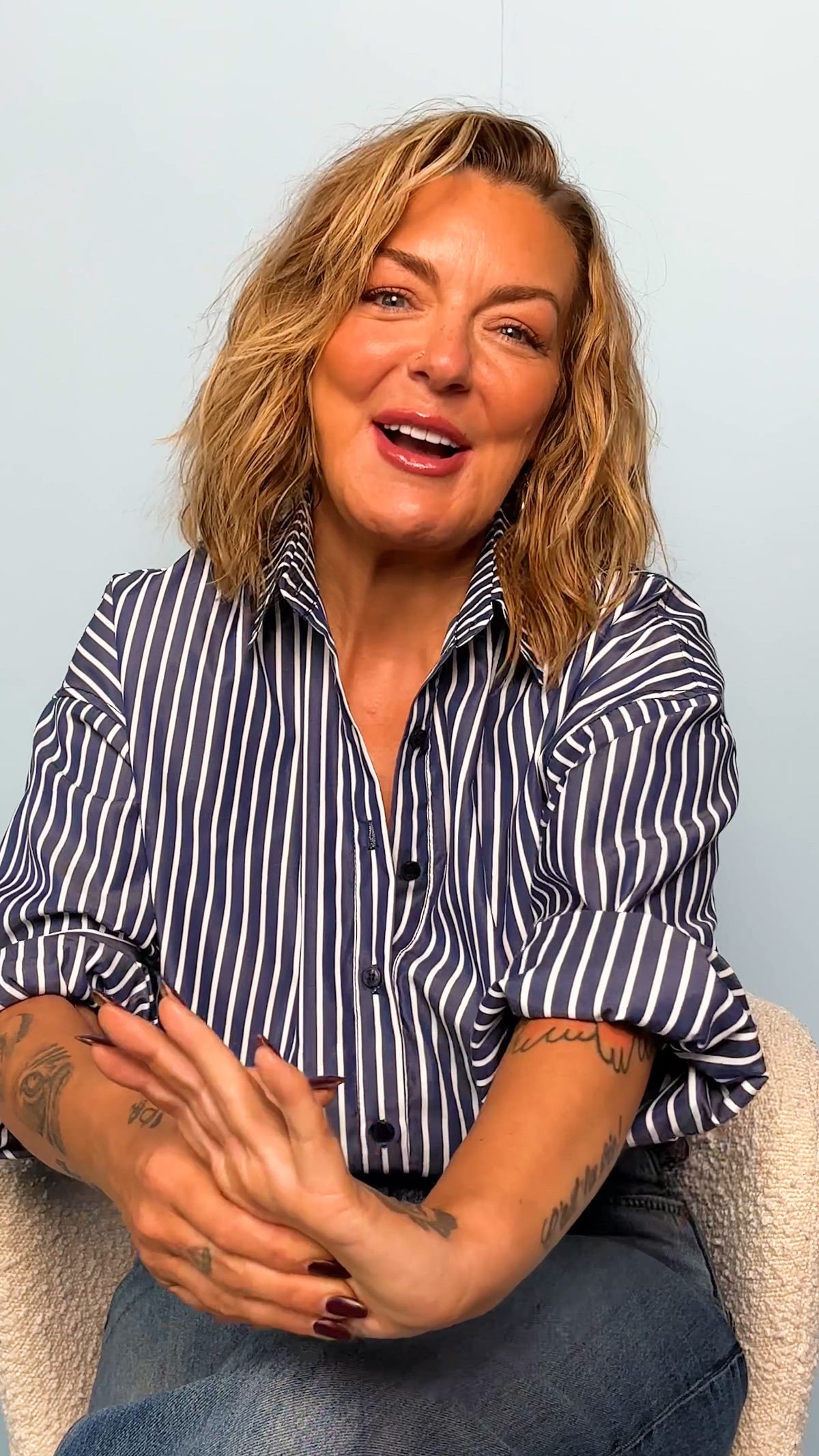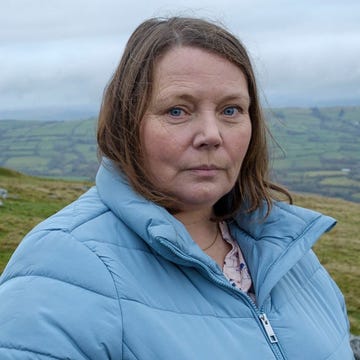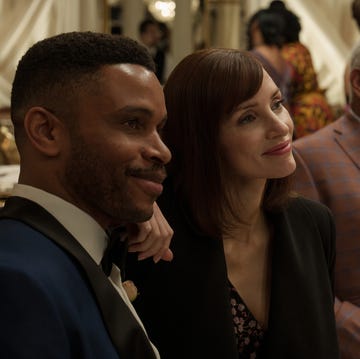Money means fear to me. Not earning it – I earn about £45,000 a year, about as much as a freelance journalist can, and I love my work – but managing it. My husband, a comic and writer on about £10,000 a year, is the same. We have what sensible people (everyone but us?) would call ‘no oversight’. Money comes in and we spend like kings: we get takeaways and buy new hardback books. When it doesn’t (freelance income is tidal), we tremble like paupers and fear losing our beautiful, rather tatty farmhouse (no money to do it up, so no Scandinavian oak flooring for us).
But we don’t enjoy money: we fight over it. I shout at him for overspending, then compensate by buying him expensive gifts. We hide spending from each other – he’s addicted to nicotine spray; I’m addicted to Ben & Jerry’s ice cream – and we secretly run up debts we can’t afford. Then we fight because I’m frightened and he’s defensive. I’m 51 and he’s 49. We have 19 years left on our mortgage, more than £30,000 in other debts and barely any pension. I fear I’ll be working into my 70s at best. But having control over money isn’t something I’ve ever felt is for me. I know it sounds odd, but I’m a recovering alcoholic, more than 20 years sober. I live like there’s no tomorrow, and I’ve never learned another way. Obviously, something about financial planning – a phrase that feels weird to even type – terrifies me.
When GH suggests we see wealth coach Sara Maxwell, I jump at the idea. Sara suggests we first do individual coaching on Zoom, then a series of group sessions. She’s warm and reassuring, and tells me that everyone can benefit from wealth coaching to achieve the life they want.
‘I remember as a child asking practical questions of adults, such as, “How much do you earn?”’ Sara says. ‘I was told, “Don’t ask, that’s rude!” We’re taught from an early age not to talk about money, then it becomes a taboo subject. I think there’s a lot of shame wrapped around money. If you’re really wealthy, there’s the shame of “I’ve got it, others don’t.”
If you’re in debt, the shame is “I’m not good enough, it’s my own fault.” The silence caused by it being so taboo sits at the root of it. I notice there’s often almost a release when people talk about their finances. You have to be able to voice how things are to create real change.’
Confronting the past
At my individual session, I talk about how being an alcoholic – feeling every day would be my last – is clearly still with me. I talk about the financial habits I learned from my parents – not the greatest, bless them – and then I manage, with Sara’s help, to talk about the things I loved in my spendthrift single years: living in a studio flat above a shop in Hampstead, treating myself to Caribbean holidays at Christmas (all on the credit card, of course). Perhaps I needed them: fun at last, because being an alcoholic is no fun at all. It’s a good session. I know this because I cry afterwards: the examined life.
After the individual sessions, Sara gives us sheets to fill in about our assets, expenditure, debts and, most importantly, how we want to spend the money we have. I’m okay filling in the assets – our house has gone up in value since we bought it, we’ve put £20,000 into an ISA for our son and Andrew has a small pension, which I don’t. Filling in the debts frightens me, and I really struggle on expenditure, because I’m ashamed of the extras. Andrew’s monthly £200+ on nicotine spray; my monthly £200+ on ice cream and takeaways. I literally couldn’t put anything down in the pleasure section – as if I didn’t deserve pleasure. (A haircut, pedicure or cashmere jumper is something to be snatched and hidden.) Something Sara said really stays with me: our assets include us – our skills and our ability to earn money.
The joint sessions are hard because we’re angry with each other, and I’m not sure how much of this we can share with Sara without doing that thing my husband fears most: embarrassing people he doesn’t know. But she’s a calming, non-judgemental presence, and we talk about how we don’t disclose our financial behaviours to each other because it creates conflict. Sara encourages us to draw potential actions out of this: can I chase invoices? (I tend not to, until I panic.) Can I help Andrew get more writing work, because I find pitching easy? Can we keep better records and share them with each other, so they’re less frightening?
Breaking the cycle
My pattern is to get frightened, shout at Andrew, then buy us a more expensive car than we need. But it’s a folie à deux – he doesn’t stop me. Sara eases this into a conversation about what we want from each other. I say: ‘I want you to earn more or spend less.’ He says: ‘I don’t want our financial planning to be based on what makes you feel safe in the moment, rather than the best use of our money.’
Overpaying the mortgage, for instance. I say: ‘I feel quite alone with this stuff.’ I translate this, in my head, into not being loved and, as I say it, I know it isn’t true. When we married, he gave me £50,000 from his inheritance to pay off my debts.
Then we move into positive ideas: how can we support each other? How can we monetise our house? How can we get better at talking about money? The answer, of course, is practice. It’s a financial-themed version of family therapy, where you look to find agreement to cross the gulfs between you.
At the end of the second joint session, Sara asks us how we feel. I want to go and howl in my bed, I tell her, and I think Andrew wants to go and punch a wall.
Sara looks at us kindly and says that for the final session, we should bring some things we agree on. And we do come up with some: that our long-term plan is to pay off the credit cards, then throw money into our pensions. And to try to enjoy our money – not use it to bully or control each other. It’s our money.
The final session is brilliant, as if something has cleared. I actually cry. I admit that functionality around moneyfrightens me, and I tell Andrew I’m so sorry if I’ve ever made him feel bad about earning less than me. I tell him the reason I become hysterical about money is that when I was drinking, I lost everything and am scared of losing everything again. I tell him I’m so attached to the £150 a month we – we! – put into our son’s ISA because it’s a way of not passing on our financial dysfunction to him and a way of showing my love for him, when I’m so often distracted by work.
Navigating the future
Sara suggests practical actions. They’re small but feel exciting. I’ll learn to sit with my panic and not dash into Andrew’s office to dump it on him when he’s trying to earn money. We can schedule conversations. When money comes in, we can congratulate each other. Andrew wants to be thanked; I want to be told I’m wonderful. I want to see twice-monthly accounts, so I know that we’re not getting into secret debt. Andrew agrees to share his personal expenditure, but not in detail, because otherwise it’s ‘too controlling and we’re just putting an argument in the diary’. Sara says, ‘What if it isn’t an argument?’ We gawp at her.
All the people Sara helps are different, but this is what we need first: the ability to at least talk about money. Security – our shared goal – will follow.
When Sara says we can have ‘money dates’, Andrew perks up. He loves admin. I tell her she’s a money angel – like Clarence from It’s A Wonderful Life, but financially-themed. I’m not saying we’re fixed – life’s a journey. But we have a new path, and that’s beautiful.
The husband's view
Tanya’s husband, journalist Andrew Watts, shares his experiences of couples’ money counselling…
About a year ago, I started going to the gym. I lost quite a bit of weight very quickly – and it wasn’t because I was working it off with intense sessions of pumping iron. What I found happening was that I started thinking about what I was eating – I wasn’t consciously dieting, but I would look at a Mars bar and see, instead of a tasty snack, half an hour extra on the cross trainer.
Sara’s money counselling sessions have been like that: I’m now much more mindful of my spending, and I think Tanya and I both have healthier habits – and we’ve only just started the process. I wouldn’t say we’re in tip-top financial health yet, any more than I’m in great physical health, but we have something to work towards. I think we’d always assumed that our differences were just quirky, cultural things: Tanya has always been a lot more open about money than me. Whenever we visit a friend’s house for the first time, Tanya is the one who’ll be asking how much they paid for it, which makes me want to hide in a corner (and enter the postcode on Zoopla on my phone like a normal person). But I’ve always been the one who sorts out the best price for utilities or groceries – that sort of thing bores Tanya, whereas I’ve always found spreadsheets soothing.
For one thing, once something is in a spreadsheet, it’s written down and you can forget about it (which I often do, much to Tanya’s annoyance). This meant that whenever we had an argument about anything to do with money, it felt like an attack on the other person’s identity. One of us would get defensive and the other would get blazingly angry; we’d end up no further on but feeling upset with each other.
When we talked with Sara, we were able to open up and really see beyond that surface; I got to appreciate that a lot of Tanya’s behaviour – such as her unwillingness to put any money in the joint account unless I remind her three times – comes from fear rather than fecklessness, and I know she had similar insights into me.
I’m not saying the whole process wasn’t deeply uncomfortable: talking about money with a stranger is my worst nightmare (which may be why my employers haven’t given me a pay rise in a decade), but I felt so much better once we’d done it. Just like after I’ve been to the gym.
Here’s how to make it work for you, says Sara Maxwell…
Schedule regular ‘money dates’
Find a time that works for you both (20-60 minutes) and plan it into your calendars. Start to gather a list of things you’d like to work through in your dates.
Decide on your joint ‘why’
What would be a good outcome for each of you? This may be different for each person at first, so ensure you listen to each other to create a focus that’s of mutual benefit.
Create the space for honesty
Be mindful of your partner and avoid judgement, recognise divisive patterns and triggers, listen fully and avoid blame. Your focus should be on how you can support each other going forward, rather than looking back.
Lay everything out all in one place
Include all your assets and liabilities, either on a sheet of paper or digitally. The important thing is that it’s clear to both of you and you allow time to understand it in full and ask questions. You can do the same for your earnings and spending, too, in whichever order you feel suits you both best.
Begin with easy things, so you can celebrate your progress
Consider a treat at the end of each date, which will help you to close off with something you both enjoy. You’re building a new pattern for long-term positive change and growth to fit in with your joint ‘why’.
Sara Maxwell is a certified professional financial coach and founder of Wealth Coach and Couples Talk Money. She has more than 20 years’ experience in the finance industry and runs money coaching sessions for both individuals and couples.














![©ITV from monumental television frauds sr1pictured: jodie whittaker as sam suranne jones as bert this photograph is (c) itv plc/ monumental television and can only be reproduced for editorial purposes directly in connection with the programme or event mentioned above, or itv plc. this photograph must not be manipulated [excluding basic cropping] in a manner which alters the visual appearance of the person photographed deemed detrimental or inappropriate by itv plc picture desk. this photograph must not be syndicated to any other company, publication or website, or permanently archived, without the express written permission of itv picture desk. full terms and conditions are available on the website www.itv.com/presscentre/itvpictures/termsfor further information please contact:michael.taiwo1@itv.com](https://hips.hearstapps.com/hmg-prod/images/frauds-sr1-first-look-03-6891d81c2d536.jpg?crop=0.428xw:0.643xh;0.0641xw,0.116xh&resize=360:*)